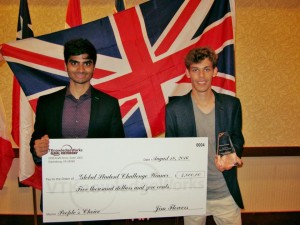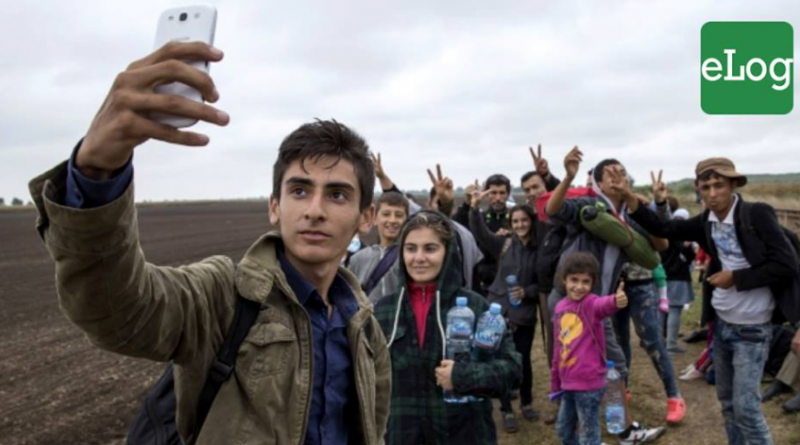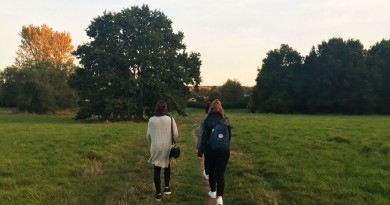The app that could solve the immigration epidemic and help refugees
The question of refugees has plagued the public left, right and centre. Britain’s, nay Europe’s, most intelligent mind’s and popular speakers have shared an opinion, yet no one has a solution: what is a country to do when approached by refugees? As Germany has found out, letting too many in, puts a strain on the country’s services which has fuelled xenophobia. While Britain appears callous to the global community for being too strict on the grounds of security. Theresa May’s speech at the Conservative party conference was a reminder of the hardline approach our current Government will take on all imigrants. This is widespread in Europe following the Hungarian referendum last week which plans to prevent hundred of thousands of Syrian Refugees from entering Europe.
However two students at the University of Kent may have a solution.

Cesare Dunker hardly looks any different to the other students at the university; buried beneath a parker jacket and glaring at a macbook screen. He is preparing for an essay on Russia and Soviet politics of the 20th century. I will say that Cesare is the only student I know who has a schedule and fortunately for me he was just able to squeeze me in… at the expense of breakfast.
We get right into our topic for today, eLog. This is an app that Cesare and his friend, Rayyan Sorefan, have been developing together. It is essentially a cross between Facebook and mobile banking for refugees. The idea is that before reaching a border, refugees will log their details, their previous locations and the original locations onto the app, and have completed the relevant paperwork before they arrive. Cesare tells me that the idea developed from an Independent article “Surprised that Syrian refugees have smartphones? Sorry to break it to you but you’re an idiot”.
He smiled at the name of the article. Something about it makes me think that he appreciates it when people’s prejudices are torn down and mocked in front of him, even if they may be his own.
“I was thinking that there’s a whole group of people undergoing this crisis that have access to smartphone technology so it was interesting i did a bit of reading and refugees use smartphones like google maps to navigate their route, google translate to overcome language barriers so why not also usa a mobile application to facilitate the asylum at the end of the day.”
The app is now much more than a two man effort, various students, all volunteers, have been drafted in to work on different aspects of the app. Digital arts and Computer science students to work on the technical features of the app, and politics and law students to work on the legal functions of the app. A room at the Innovations department as well as assistance from the university is at their disposal.
When I asked him if there were any worries that a team of students may be unreliable he brushed aside the comment. “Everyone is a volunteer and committed to the project.”
It would be a misconseption to say that this app replaces the current system of processing refugees, it merely makes the process a lot more efficient. Refugees in general have a lot more to worry about that carrying birth certificates and other documents about them.
“What the application will do essentially is empower asylum seekers to build their own asylum case, so what that essentially means is they are going to be downloading this application onto their smartphone device and they will have a list of what documentation that immigration department is looking for, then they can upload this onto the application and bascially build their own asylum case in the progress.”
A system such as this offers to make borders not only more efficient in processing applications for asylum, but also a lot more secure, having been able to track the movements of the applicant and already having the documents they need to hand. For Syrian Refugees this would be particularly useful as there are 4.8 million on the outskirts of Europe hoping to claim asylum. Often immigration departments are burdened with false claim made by people from surrounding areas.
Though the app is still in its developing stages, Cesare and Rayyan have gone to Virginia Tech University, USA to compete in the Global Entrepreneurship Champion Competition. Though not winning top prize in a competition involving universities from across the world, won the people’s choice along with $5000. Cesare brushes this aside, he is only concerned with the development of the app.
ELog is expected to be available for android September next year.



